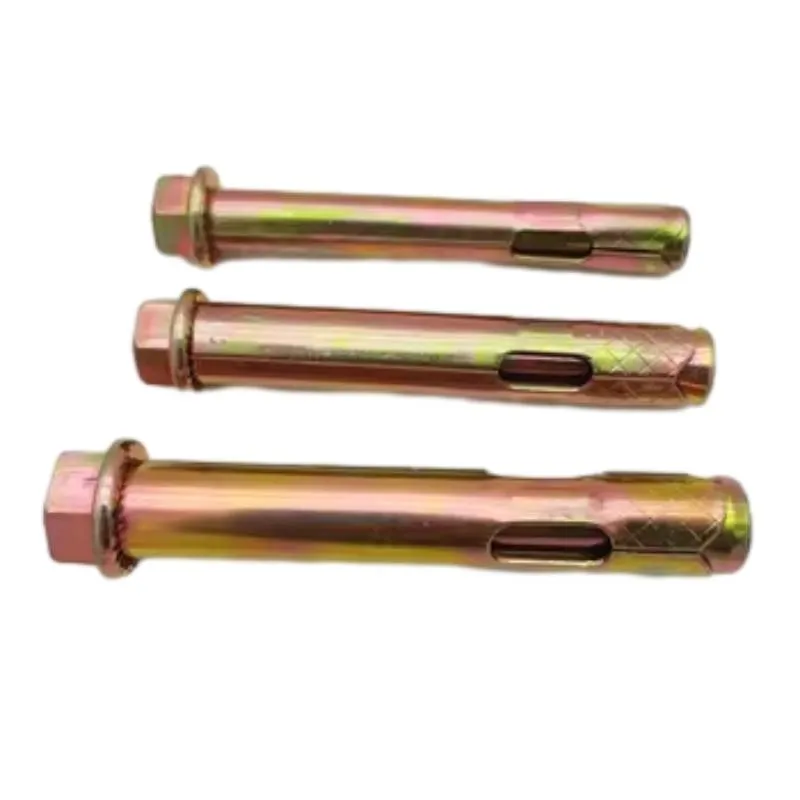Dec . 09, 2024 17:40 Back to list
Exploring the Impact of 10.9% Bolts on Structural Integrity and Performance
Understanding the Significance of 10.9% Bolts in Engineering and Construction
In the world of engineering and construction, fasteners play a critical role in ensuring the integrity and safety of structures. Among various types of fasteners, bolts are notable for their strength and reliability. One of the prominent classifications of bolts is based on their grade, with 10.9% bolts standing out due to their robust properties and wide range of applications.
What are 10.9% Bolts?
10.9% bolts are high-strength bolts characterized by their tensile strength. The designation 10.9 indicates the minimum yield strength and tensile strength of the bolt material when measured in megapascals (MPa). Specifically, a 10.9 bolt has a minimum tensile strength of 1,000 MPa and a yield strength of 900 MPa. This makes them particularly suited for demanding applications where high load-bearing capacity is essential.
These bolts are manufactured from carbon steel and are often subjected to heat treatment processes to enhance their mechanical properties. The processes typically include quenching and tempering, which increase the hardness of the bolt while maintaining its ductility.
Applications of 10.9% Bolts
10.9% bolts are widely used in various industries, including construction, automotive, and aerospace. Their high strength and durability make them ideal for critical joints in structures that experience dynamic loads, such as bridges, cranes, and heavy machinery.
In construction, 10.9 bolts are often utilized in steel structures where safety is paramount. For example, they are commonly found in the connections of steel beams and columns, where they are subjected to tension and shear forces. The use of these high-grade bolts ensures that the connections can withstand significant stress while minimizing the risk of failure.
In the automotive industry, 10.9% bolts are essential components in engine assemblies, transmission systems, and suspension systems. The reliability of these bolts ensures that crucial parts remain securely fastened under the constant vibrations and forces experienced during vehicle operation.
10.9 bolts

Advantages of Using 10.9% Bolts
The advantages of using 10.9% bolts are numerous. Their high strength-to-weight ratio means that engineers can design lighter structures without compromising on safety or performance. This is particularly advantageous in industries like aerospace, where every gram counts in terms of overall weight and fuel efficiency.
Additionally, 10.9% bolts are highly resistant to fatigue. This resistance is critical in applications where cyclic loading is common, as it reduces the likelihood of failure over time. This durability can lead to lower maintenance costs and increased safety, important factors in both economic and practical terms.
Furthermore, the use of 10.9% bolts allows for easier assembly and disassembly of structures. Their consistent performance under load means that they can be tightened with confidence, and when maintenance or adjustments are required, they can be removed and reinstalled without compromising their strength.
Challenges and Considerations
Despite their advantages, there are some challenges associated with the use of 10.9% bolts. They require precise installation techniques to achieve the necessary clamping force. Engineers and technicians must be trained to use torque wrenches and other tools correctly to avoid over-tightening, which can lead to bolt failure.
Moreover, the cost of high-strength bolts is typically higher than that of standard-grade bolts. Therefore, it is essential for engineers to evaluate the necessity of using 10.9% bolts in specific applications and weigh the costs against the safety benefits they provide.
Conclusion
10.9% bolts are an essential component in modern engineering and construction. Their high strength, durability, and reliability make them suitable for a variety of critical applications across industries. As technology continues to evolve, the use and importance of high-strength fasteners like 10.9% bolts will undoubtedly remain a key focus in the pursuit of safe and efficient engineering solutions. Understanding their properties and applications is crucial for engineers and builders to ensure the integrity and longevity of their structures.
-
Threaded Rods in Art Where Structural Integrity Meets Aesthetic Vision
NewsApr.11,2025
-
Optimize Industrial Fastening with Precision-Crafted Hex Nut Solutions
NewsApr.11,2025
-
Master Fastening with Premium Stainless Steel Carriage Bolts
NewsApr.11,2025
-
Hex Sleeve Anchors: Smart Choice for Industrial-Grade Concrete Fastening
NewsApr.11,2025
-
Hex Head Timber Screws: Reinventing Safety in Modern Livestock Enclosures
NewsApr.11,2025
-
Elevate Efficiency with Robust Beam Clamps
NewsApr.11,2025


